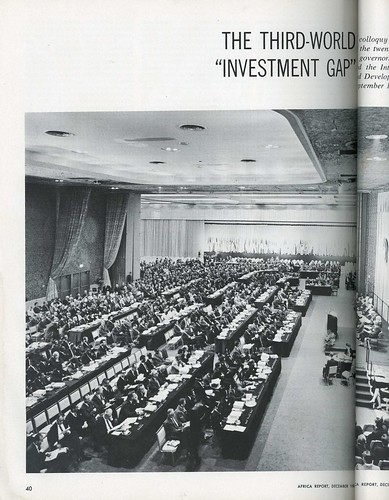First Class Compromisers
I was reading W. Arthur Lewis on consensus, compromise and the role of the African intellectual: Some Aspects of Economic Development (Aggrey-Fraser-Guggisberg memorial lectures at the University of Ghana 1968).
One strand in his thought that I keep coming back to is about restraint, something that would have been taken as anachronistic back then and altogether quaint today
It is remarkable what a difference just one or two sensible leaders can make to the whole temper of a country. Take for instance the following riddle.1968 was a heady year and the tectonics affected Africa too, even beyond the military coups that had been sweeping the continent
The political temper of seventeenth century Britain was more violent and extremist than anything that has happened recently in West Africa. Anglicans, Puritans and Catholics were at each others' throats. One king was executed and another chased off the throne. An observer writing, say, around the year 1715, after the abortive rebellion of that year, would have described Britain as a violent country where consensus was unthinkable.
Yet from the middle of the eighteenth century, just thirty years later, Britain was being held up on the continent as the model of a politically stable society. What had happened in that interval of thirty years? Historians now agree that a major element, though not the only one, was the fact that Sir Robert Walpole became Prime Minister in 1721, and held the office for twenty one years. Walpole was a compromiser, who made it his business to conciliate all the major groups who were fighting each other...
My generation was an ideological generation. We had no use for compromisers. Our heroes were the men wedded to great principles, to socialism, independence, negritude or other great ideas.The 20th century as the age of extremes
One consequence of our high emotional level is that ours has been the bloodiest generation since the 17th century, killing, or liquidating, as we now say, about 25 million people in the course of 50 years.His prescription?
I think that what West Africa now needs is some first-class compromisers, who will bind up the wounds of their respective countries, and lay solid foundations for growth. They may not win our love or adulation, but they will certainly deserve our gratitude.Now of course W. Arthur Lewis had more influence on economics than on politics, and Africa's lost decades illustrate fairly well just how little we listened to his like. Still, his keen insights do raise the counterfactual:
Do conversational politics just need better public relations?
The notion of first class compromisers appeals to me but, well, you go into your lost decades with the leaders you have. You go into a pandemic with the leaders you have (as the body count we have seen illustrates). And not just leaders, you get the political class, the economic interests, the media environment, the feckless and the opportunists in equal measure as the astute and the competent. Even with the best will and cultural context, you need a lot of luck.
Contra first class compromisers like Walpole, I'm minded of Orson Welles speech in the Third Man about the Swiss and the cuckoo clock, and perhaps an earlier zinger
Honesty hath no fence against superior cunning.One can only hope that the first class compromisers of this generation of African leaders also have the savvy and luck to push their agenda through.
— Jonathan Swift, Gulliver's Travels
File under: politics, strategy, history, Ghana, Africa, economics, toli, culture, observation


No comments:
Post a Comment